On the heels of our first stop of the Atlassian Open tour, we held our annual Atlas Camp developer conference in Vienna. Atlas Camp is our opportunity to bring the whole Atlassian developer community together and learn from each other. It’s where you can learn best practices from the experiences of your developer peers, in addition to Atlassian presenting the latest and greatest advancements in our products that you can hook into. By the numbers:
- 350 attendees
- 4 tracks
- 50 breakout sessions
- 1000 Viennese sausages consumed (just kidding, but not really…)
Atlas Camp is always a time for us to reflect on our humble beginnings. Martin Suntinger, Head of Product for Ecosystem, told us about how he got his professional start in Vienna, where he studied at university and met his business partner with whom he built the app Roadmaps for Jira. He told us that they chose Atlassian because it has a platform customers love, it solves the distribution challenge with a large user base, and it is both flexible and powerful enough to build what they envisioned.

Today, we know that more than 60% of our customers across server and cloud use an app from the Atlassian Marketplace. And as we look at our largest customers, that number is well over 80%. One customer in the entertainment industry told us they use 101 apps!
This appetite for apps (see what we did there? 
The numbers also show that our customers are taking us, and their apps, to the cloud. The cloud side of our ecosystem grew more than 60% year over year, and nearly 150 vendors saw triple digit growth in their cloud sales. Cloud truly is becoming a critical part of many businesses built on Marketplace!
Martin also talked about the future state of ecosystem, and what developers can expect to see from us in the coming year.
How we’re thinking about the future state of ecosystem
At Summit earlier this year, Atlassian co-founder Mike shared our commitment to making our cloud products deliver the best Atlassian experience for all types of teams. This extends to ecosystem as well. In order to do this, we need to build trust with customers, offer greater choice of cloud apps, and provide a clearer migration path as customers move from server to cloud.
To address trust, we’ve started piloting a bug bounty program with a few Marketplace vendors. With 27 accepted vulnerabilities (including 2 criticals) and $11,600 paid out in rewards, it’s proven to be a success so far with the vendors in the beta program, and we’re looking to expand it to more vendors soon. We’re also working to simplify and standardize the security assessment process, so that customers will better understand the investments you’re making to secure their data.
To address choice, we are focused on providing more cloud APIs to unlock critical use cases that developers can build for. For example, right now we’re looking into configuration management uses cases in Jira and content organization use cases in Confluence. Since 90% of new Atlassian customers start in the cloud, and thousands of server customers are making the switch, we are confident that the demand for cloud apps across a variety of uses will continue to increase as customer growth in cloud increases.
We’ve also held App Weeks to accelerate the development of cloud apps with hands on guidance from the Atlassian product teams, and because of that, more than 40 of our top server apps have made it to cloud since last year. Our next App Week is scheduled for January 2020 in Scottsdale, Arizona. (Details to be announced.)
To address migration, we’re working on an app assessment report to be included with our product migration assistant tool that will display whether the same app is available in cloud and whether it has feature parity. We’ll need to source this info directly from Marketplace vendors, so be on the lookout for an “app source of truth tool” where you can provide details about your app availability, including if and when you’re planning to offer a cloud compatible version of your apps. This tool will not only help customers make informed decisions about migrating to cloud, it’ll signal to us any challenges that you’re facing with app migration readiness.
There’s even more we’re doing to address these things that we believe will provide a greater experience for customers and developers, but you’ll have to stay tuned to find out. Watch this space.
What we’ve shipped
We’ve shipped new APIs and enhancements to our most popular cloud products.
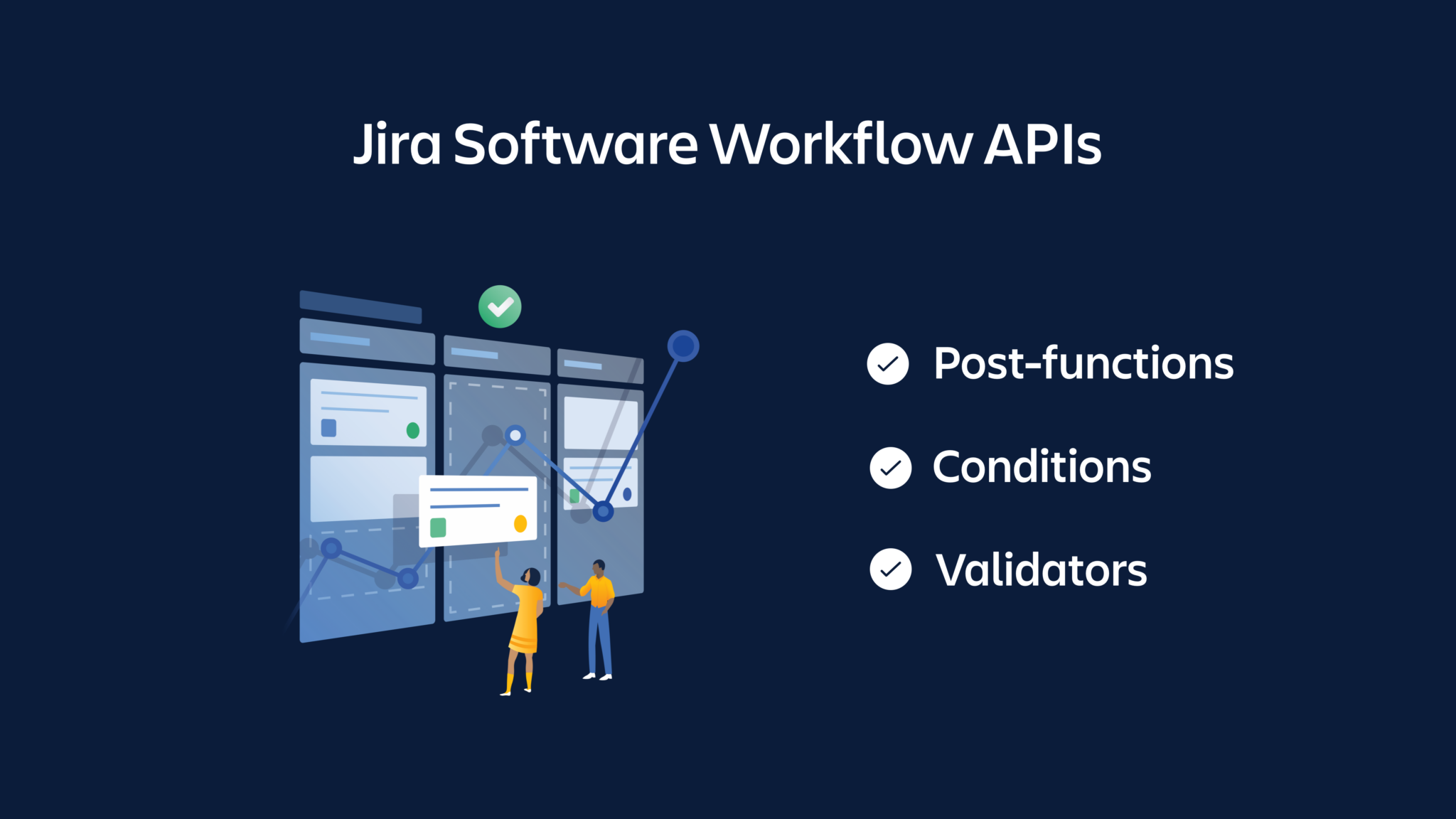
In Jira Software Cloud, we launched two new Connect modules that let apps unleash the full power of Jira workflows. This includes access to new elements like conditions, that check whether a transition should be performed by the user, and validators, that check input made to the workflow transition is valid before the transition is performed. You can read more about this here.
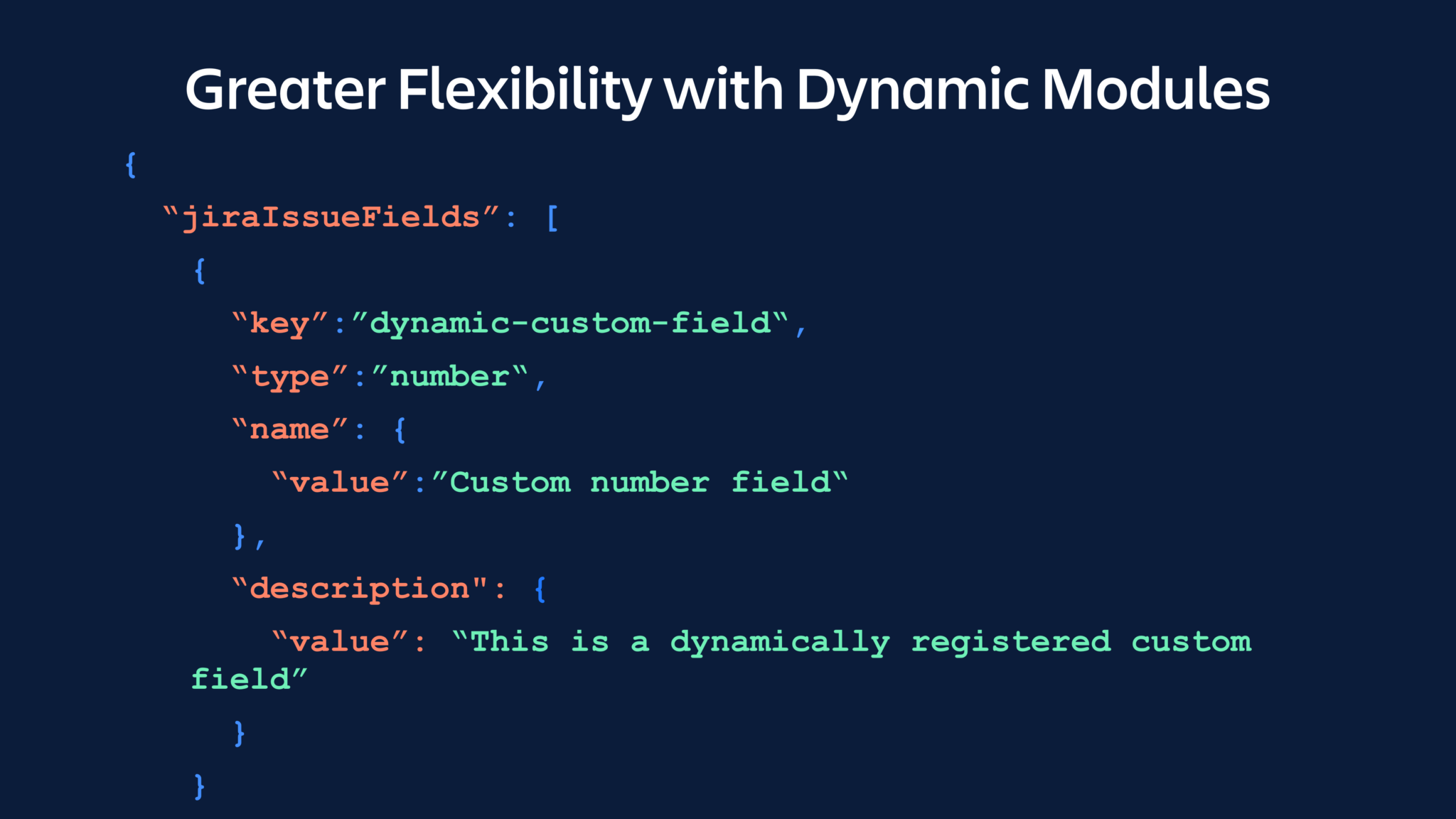
We also shipped dynamic modules for Jira, and some are coming soon to Confluence Cloud. Modules can now be registered dynamically in the context of an app installation, giving you more flexibility in defining an app’s behavior. For example, when a user gives a value to a field on a project in Jira, you can now index and store those values. In Confluence, we’re working on dynamic modules for macros and webhooks, and we are considering adding web panels as well.
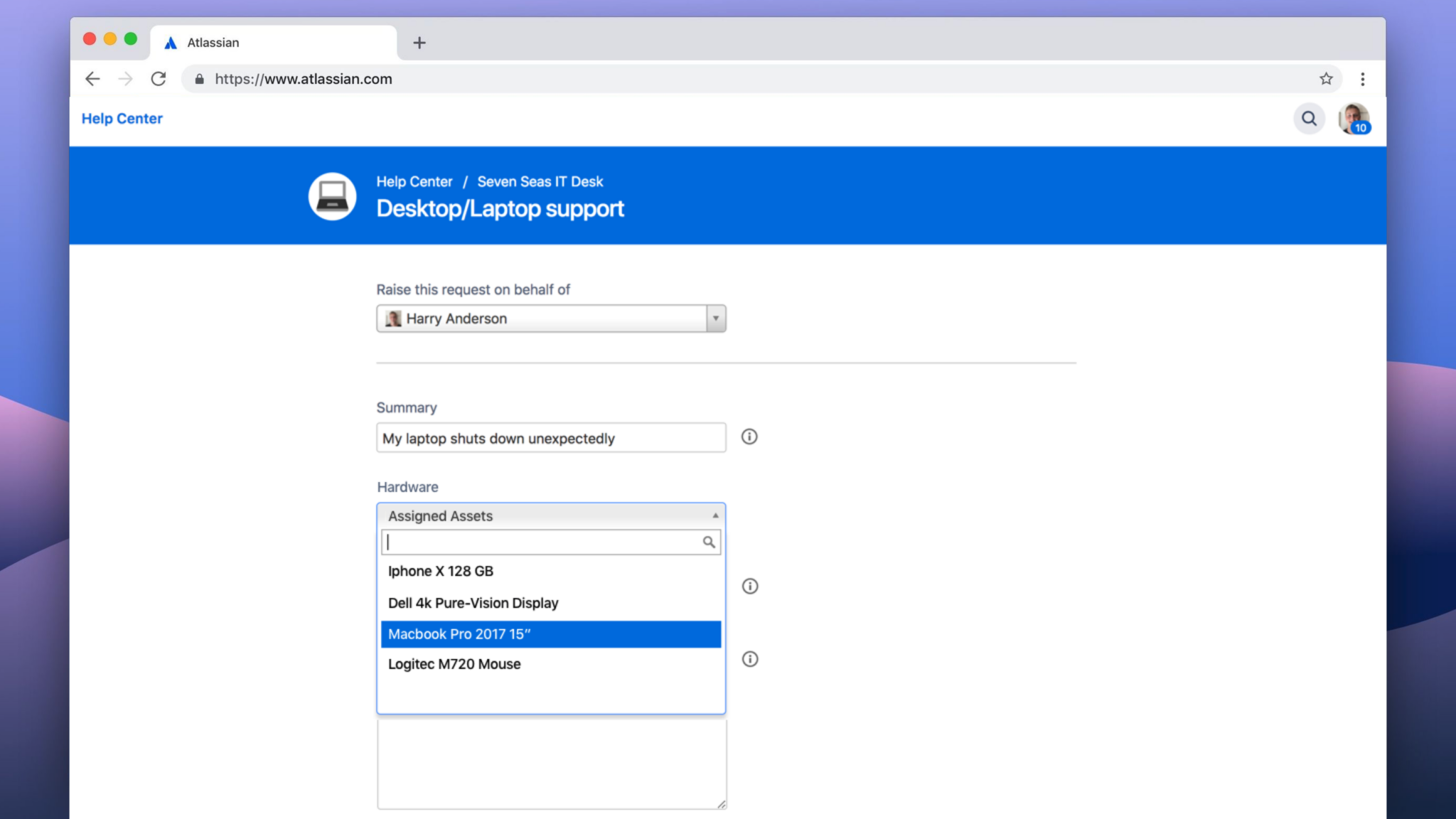
In Jira Service Desk, we shipped an asset management API. This actually works across Jira Software and Jira Core as well, but we find Jira Service Desk to have the most compelling use case: say an employee’s laptop is constantly rebooting; agents want to know when it was purchased, the model number, OS version, patches applied to it. In addition, they want to be able to pull up a list of previous requests tied to that device. This API makes that possible. You can learn more about it here.
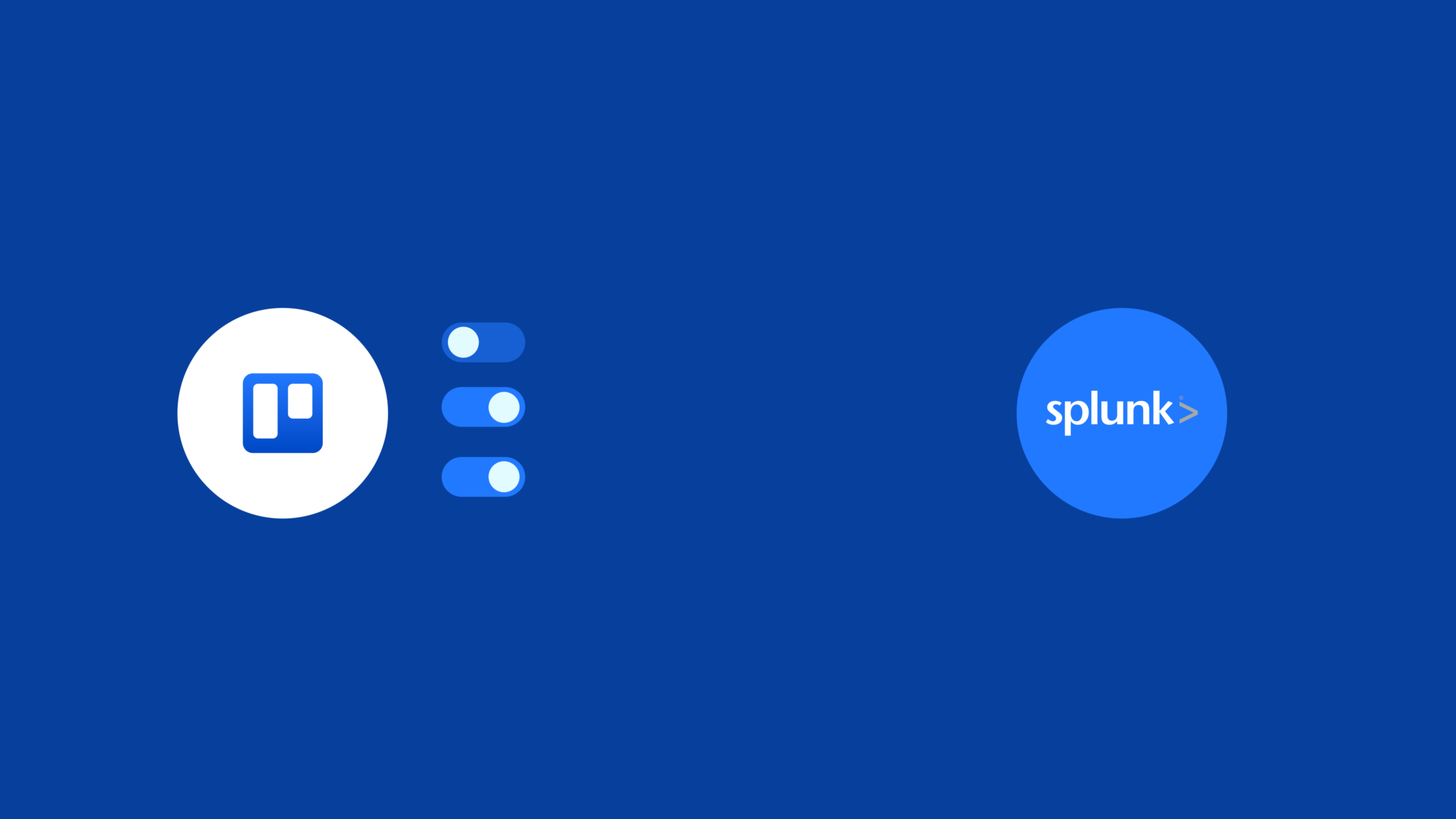
In Trello, we added Enterprise actions and webhooks to help customers be aware of events as they occur. Webhooks in Trello are not new, but the addition of the enterprise actions are a great way to easily integrate with IT services so they can trust usage is managed. For example, until recently, there wasn’t a good way to get notifications in Splunk about a team being added to a Trello Enterprise account. You’d have to write your own service to regularly poll the Trello Enterprise API. Now you can setup a webhook so that Trello tells you exactly when a team was added to an Enterprise account.
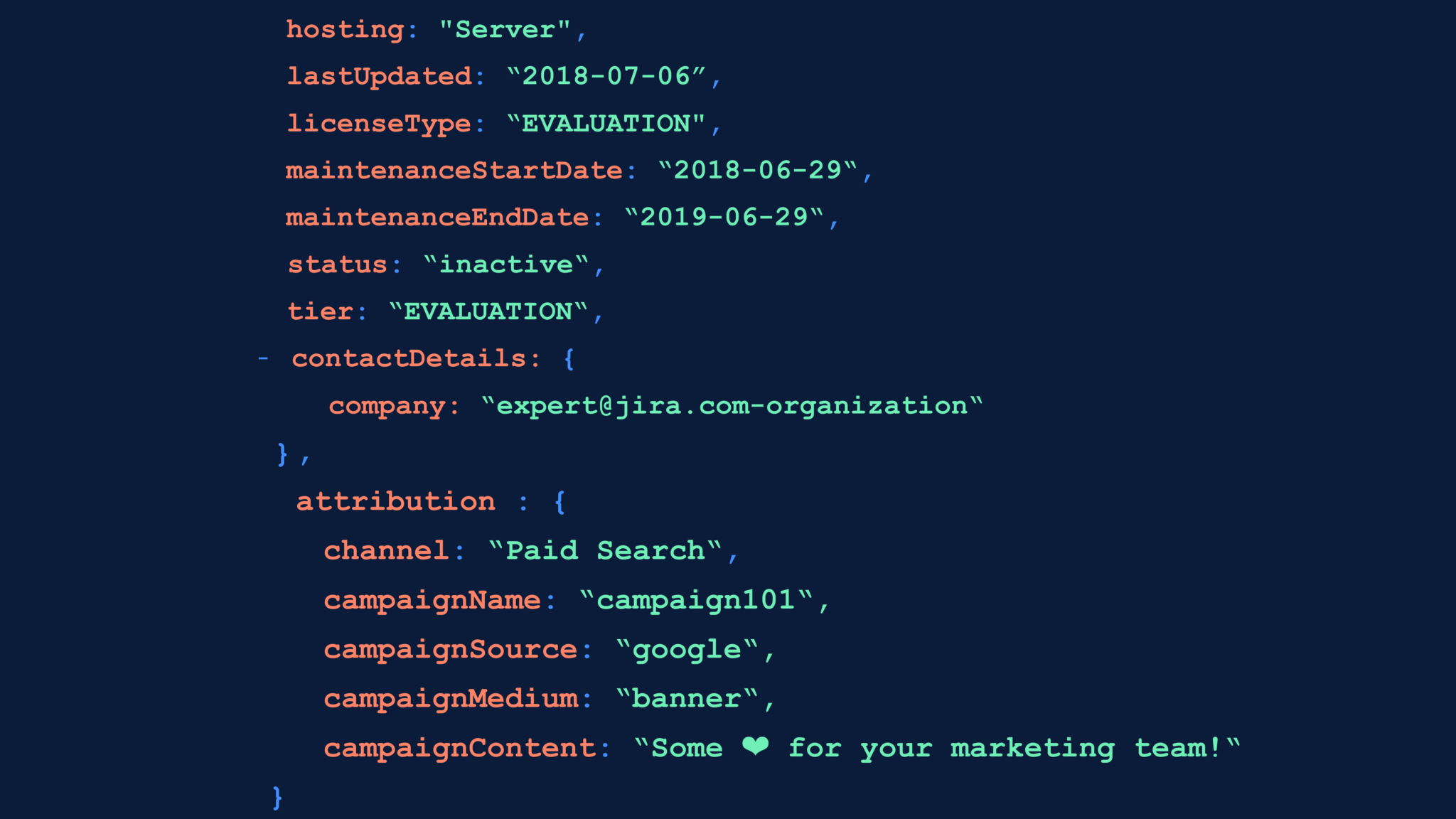
And finally, something for everyone: marketing attribution in our Marketplace API. We’re now exposing marketing attribution channels through the API so that you can tie an evaluation or conversion to the source of traffic. It gives you critical insights into how your marketing channels and campaigns are performing, so you can spend your money where it matters. This has been a long time coming and we’re really excited to finally release it! Check out the details here.
Want to watch the rest of the goodness that went on at Atlas Camp? Check out the recorded sessions.
